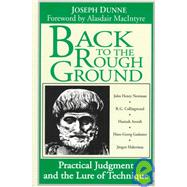| Foreword to the Paperback Edition | xiii | (2) | |||
|
|||||
| Preface | xv | ||||
| Introduction | 1 | (30) | |||
| 1. Generative Context of the Study and Its Central Issue | 1 | (7) | |||
| 2. The Company of Philosophers | 8 | (12) | |||
| 3. Conversation as a Mode of Philosophical Inquiry | 20 | (11) | |||
| PART 1: THE RETRIEVAL OF PHRONESIS AND TECHNE IN MODERN PHILOSOPHY | 31 | (206) | |||
| A. Specific Domains: Religion, Art, and Politics | 31 | (73) | |||
|
31 | (24) | |||
|
31 | (2) | |||
|
33 | (5) | |||
|
38 | (7) | |||
|
45 | (5) | |||
|
50 | (5) | |||
|
55 | (33) | |||
|
55 | (5) | |||
|
60 | (4) | |||
|
64 | (5) | |||
|
69 | (6) | |||
|
75 | (6) | |||
|
81 | (7) | |||
|
88 | (16) | |||
|
89 | (2) | |||
|
91 | (2) | |||
|
93 | (4) | |||
|
97 | (3) | |||
|
100 | (4) | |||
| B. The Universal Scope of Philosophical Hermeneutics | 104 | (64) | |||
|
104 | (34) | |||
|
106 | (3) | |||
|
109 | (1) | |||
|
110 | (7) | |||
|
117 | (4) | |||
|
121 | (2) | |||
|
123 | (5) | |||
|
128 | (4) | |||
|
132 | (6) | |||
|
138 | (30) | |||
|
138 | (6) | |||
|
144 | (3) | |||
|
147 | (5) | |||
|
152 | (4) | |||
|
156 | (8) | |||
|
164 | (4) | |||
| C. The Challenge of Critical Theory | 168 | (69) | |||
|
168 | (25) | |||
|
168 | (5) | |||
|
173 | (4) | |||
|
177 | (5) | |||
|
182 | (4) | |||
|
186 | (7) | |||
|
193 | (34) | |||
|
193 | (5) | |||
|
198 | (3) | |||
|
201 | (8) | |||
|
209 | (7) | |||
|
216 | (11) | |||
|
227 | (10) | |||
| PART 2: PHRONESIS AND TECHNE IN ARISTOTLE | 237 | (120) | |||
|
237 | (38) | |||
|
237 | (2) | |||
|
239 | (5) | |||
|
244 | (5) | |||
|
249 | (4) | |||
|
253 | (8) | |||
|
261 | (8) | |||
|
269 | (6) | |||
|
275 | (40) | |||
|
275 | (4) | |||
|
279 | (2) | |||
|
281 | (4) | |||
|
285 | (5) | |||
|
290 | (5) | |||
|
295 | (5) | |||
|
300 | (4) | |||
|
304 | (6) | |||
|
310 | (5) | |||
|
315 | (42) | |||
|
315 | (4) | |||
|
319 | (7) | |||
|
326 | (3) | |||
|
329 | (5) | |||
|
334 | (4) | |||
|
338 | (5) | |||
|
343 | (7) | |||
|
350 | (7) | |||
| Epilogue | 357 | (26) | |||
| 1. The Main Themes | 357 | (7) | |||
| 2. Import for Practices | 364 | (7) | |||
| 3. Bearings in Philosophy | 371 | (12) | |||
| Notes | 383 | (86) | |||
| Bibliography to Introduction and Part 1 | 469 | (8) | |||
| Bibliography to Part 2 and Epilogue | 477 | (8) | |||
| Index | 485 |









